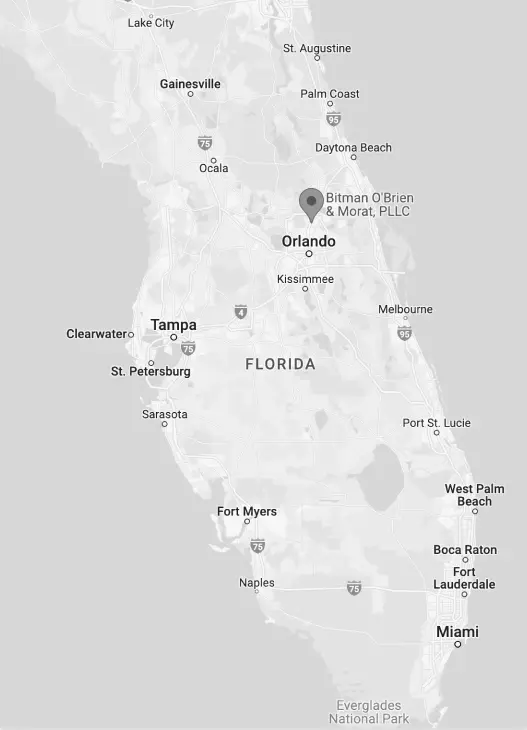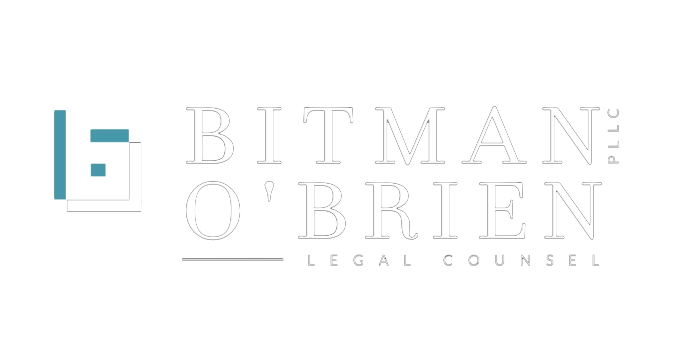Consumer Law in Florida
Fair Debt Collection Practices Act (FDCPA)
Under 15 U.S.C.A. § 1692 a debt collector may not engage in any conduct the natural consequence of which is to harass, oppress, or abuse any person in connection with the collection of a debt. The following conduct is a violation of this section:
- The use or threat of use of violence or other criminal means to harm the physical person, reputation, or property of any person.
- The use of obscene or profane language or language the natural consequence of which is to abuse the hearer or reader.
- The publication of a list of consumers who allegedly refuse to pay debts, except to a consumer reporting agency or to persons meeting the requirements of section 1681a(f) or 1681b(3) of this title.
- The advertisement for sale of any debt to coerce payment of the debt.
- Causing a telephone to ring or engaging any person in telephone conversation repeatedly or continuously with intent to annoy, abuse, or harass any person at the called number.
- Except as provided in section 1692b of this title, the placement of telephone calls without meaningful disclosure of the caller’s identity.
To prevail on an FDCPA claim, the plaintiff must establish that: (1) he or she was the object of collection activity arising from consumer debt; (2) the defendant qualifies as a “debt collector” under the FDCPA; and (3) the defendant engaged in an act or omission prohibited by the FDCPA. The statute of limitations for a FDCPA claim is one year from the violation.
Florida Consumer Collection Practices Act (FCCPA)
Florida passed its own legislation to supplement the FDCPA. The FCCPA is broader than the FDCPA and applies to any person attempting to collect a debt. The statute of limitations for a FCCPA claim is two years from the violation. Florida Statute § 559.72 includes an extensive list of prohibited practices in collecting consumer debts. Some of the prohibited practices include:
- Using or threatening, through any type of communication, force or hostility.
- Contacting the debtor after 9:00 PM and before 8:00 AM without the debtor’s permission.
- Impersonating, in any way, a law enforcement officer or representative of a government agency.
- Harming the debtor’s reputation.
- Speaking with or threatening to speak with the debtor’s employer (without permission) before having a final judgment against the debtor.
- Using profane, obscene or vulgar language when corresponding with the debtor or any member of their family.
- Attempting or threatening to enforce a debt knowing that the debt is not valid.
- Communicating with a debtor knowing that the debtor is represented by an attorney in regard to the debt being sought.
See Florida Statute § 559.72 for the complete list of prohibited practices.
A debtor may bring an action for damages under the FDCPA and FCCPA. Damages can be actual and additional statutory damages of up to $1,000, together with court costs and reasonable attorneys’ fees. The court may also award punitive damages and provide equitable relief as it deems necessary or proper.
Florida Deceptive and Unfair Trade Practices Act (FDUPTA)
FDUTPA is a statutory cause of action set forth in Chapter 501 of the Florida Statutes. FDUTPA was enacted to “protect the consuming public and legitimate business enterprises from those who engage in unfair methods of competition, or unconscionable, deceptive, or unfair acts or practices in the conduct of any trade or commerce.” Florida Statute § 501.202(2). The FDUTPA statute is broad and can encompass many different deceptive, misleading and unfair actions and activities.
Under FDUTPA, you can recover compensatory damages along with attorneys’ fees, if you are the prevailing party. FDUTPA does not allow for recovery of punitive, consequential or incidental damages. The statute of limitations for bringing a FDUTPA claim is four years from the date of the event giving rise to the FDUTPA claim.
If you are the victim of deceptive or unfair trade practices or someone has sued you for violating FDUTPA, Bitman O’Brien, PLLC can assist you. Our experienced attorneys are well versed in the law regarding the Florida Deceptive and Unfair Trade Practices Act.
In order to assert a claim for damages under FDUTPA, a plaintiff must establish:
- A deceptive act or unfair practice,
- Causation,
- and Actual damages







